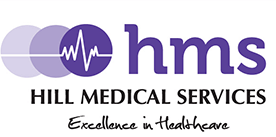Movember: Supporting Men’s Health
Movember (1 - 30 November) is the perfect time to highlight men’s health issues, including mental health, suicide prevention, and cancer.
Services and resources available in south east Melbourne include:
The Men’s Table offers monthly gatherings in Frankston and Port Melbourne, providing a safe, judgment-free space for men to share and support each other. Men’s Table members also receive LivingWorks ASIST suicide prevention training, strengthening peer support networks.
Movember Conversations
Movember Conversations gives practical guidance on how to support men who might be struggling. Friends, family, and colleagues can all use this interactive tool to gain the skills and confidence to approach challenging conversations with the men in their lives.
Learn more
Please reach out to you GP at HMS to discuss any issues you may have.
MY MEDICARE PATIENT INFORMATION
• My Medicare registration is voluntary and free.
• You can still be a patient at HMS without being registered.
• If you do register at this practice, you may be entitled to longer phone or video (telehealth) consultations that are funded by Medicare.
• Registration will also help the practice to deliver healthcare services that better meet your needs, including services provided by practice nurses and allied health professionals.
• You don’t have to see a practice nurse or allied health professional if you would prefer to see your GP.
• You can still see another GP at another practice should you wish but you won’t be able to access the longer (Medicare-funded) telehealth consultations at the other practice.
• We can provide you with a form to register with a GP at this practice.
• Patients will be able to register at this practice or online through their Medicare Online Account.
• For more, see frequently asked questions: https://www.health.gov.au/resources/collections/resources-for-mymedicare-patients


